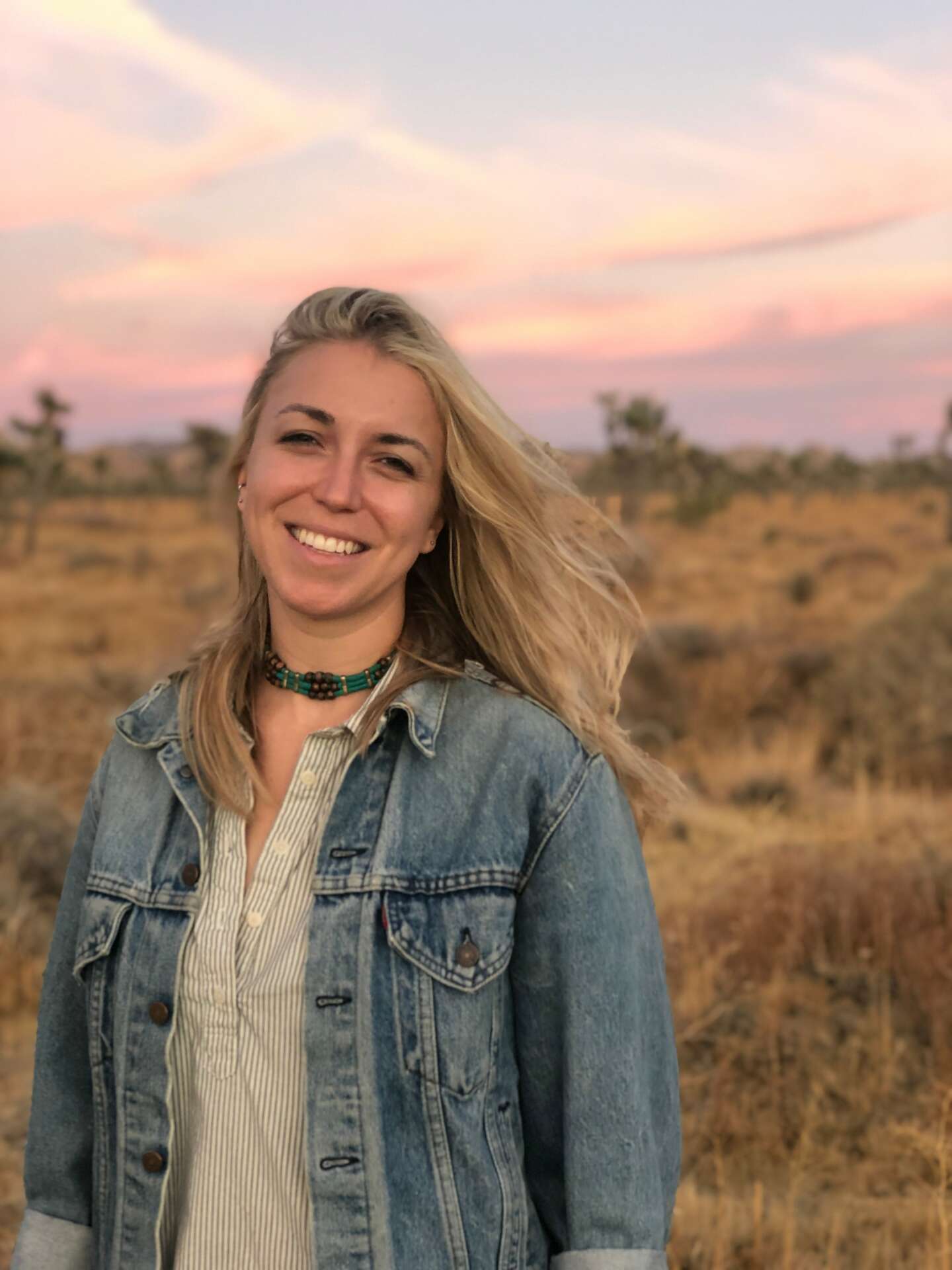We caught up with the brilliant and insightful Katia Koziara a few weeks ago and have shared our conversation below.
Hi Katia, thanks for joining us today. It’s always helpful to hear about times when someone’s had to take a risk – how did they think through the decision, why did they take the risk, and what ended up happening. We’d love to hear about a risk you’ve taken.
It’s a great question. I think one of the toughest elements of this industry is that you’re always looking for ways to continuously put yourself out there and remain relevant. It is trying to constantly be convincing people of your worthiness and to raise funds and enthusiasm for the next project. I would say the risks that I’ve taken and the hardest choices to make have often been times when I’ve decided to say no to a project. It is difficult not to fear that as soon as you reject a project that you will never collaborate with those creators again. Or even worse, to fear that the project you said no to will be the one that could’ve catapulted you to stardom and made all your dreams come true. It took me years (and to be entirely honest I’m still working on it) to be able to say no and start trying to focus on what it is I really want to say and do with my voice. Trusting my gut and knowing when a project isn’t right for me has helped me clarify to myself who I am as an artist.
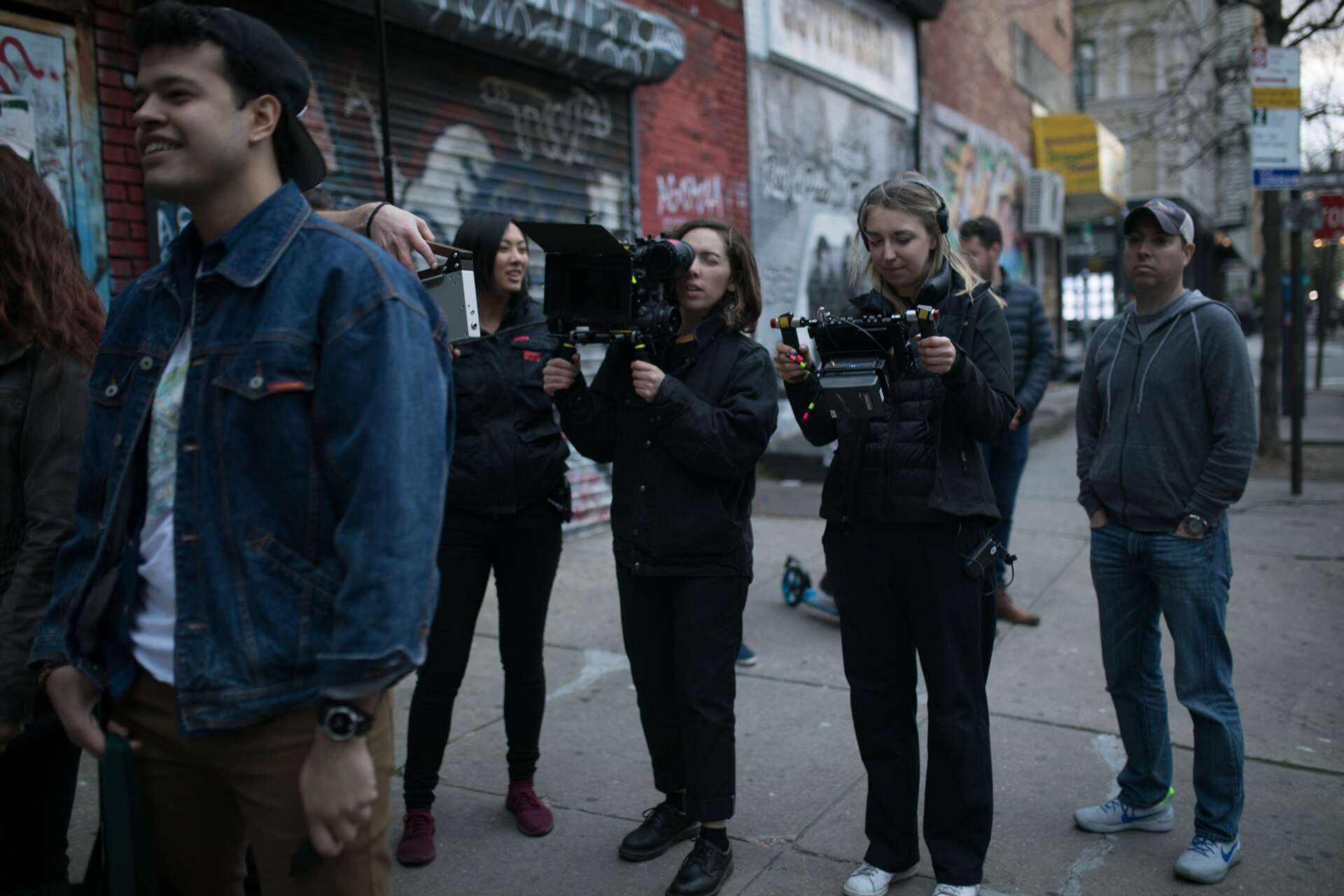
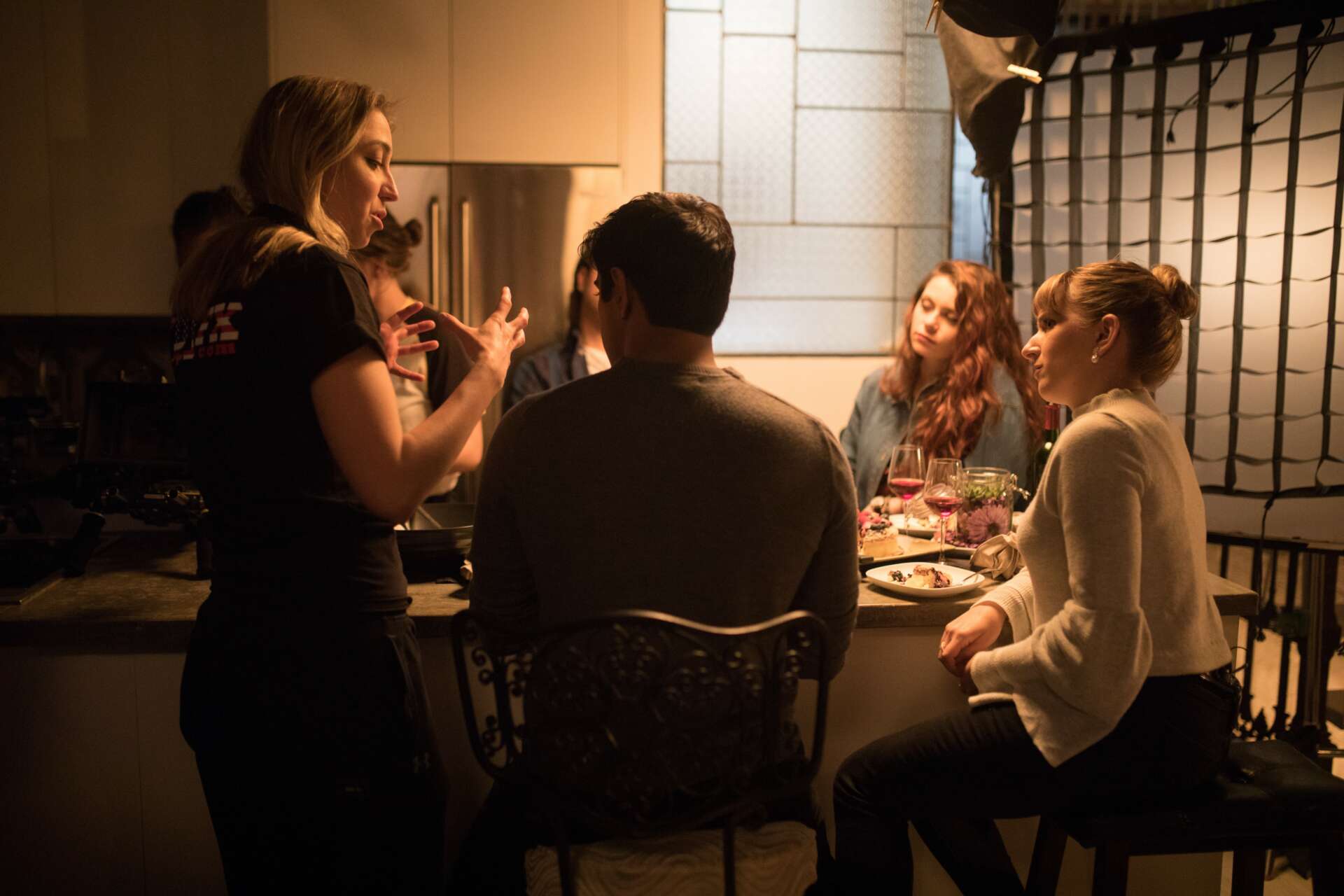
As always, we appreciate you sharing your insights and we’ve got a few more questions for you, but before we get to all of that can you take a minute to introduce yourself and give our readers some of your back background and context?
My name is Katia Koziara and I’m a filmmaker based out of New York City and Los Angeles. I am drawn to stories that depict the inner complex and often contradictory elements of the human experience. Stories that show how emotions are messy, layered, and mysterious even to ourselves. Some themes I’ve explored in my previous works are “Is there an objective/algorithmic formula for a successful relationship?” “Is trying to make art as a career inherently selfish?” and “How do we break out of patterns of shame and generational trauma?”
I was lucky enough to grow up in a household filled with art and expression. I started my career in theater, where I learned the value and techniques of script analysis and discovery through the rehearsal process. I got bit by the film bug in my early 20s when I landed a Director’s Assistant position on a major network television show and was excited by the rigor, pace, and artistic excellence. I have since been pushing to continuously expand my knowledge base and hone my voice to make meaningful and insightful work. When not making my own work, I have been involved on the creative teams for shows such as Severance, Hello Tomorrow, and Blue Bloods.
My mission through my art is to hold up a mirror to the human experience and unpack the complexity, nuance, and duality of human emotions. I am inspired by films where the story is motivated by the inner turmoil of it’s protagonists rather than external “plot-point” events.
I began my artistic career in the theatre. Born from a lighting designer and a dancer, I was inevitably destined for a career in the arts. After graduating from Bard College with a degree in Theatrical Directing, I moved to New York City with the expectation that I would make a my mark there. I was fortunate to meet the renowned director Walter Bobbie who took me under his wing and mentored me through my first few years in the city. While working with Walter, I was offered a position as a personal assistant for an actor on a television show. I hated being a person assistant, but I immediately fell in love with the production culture. I pivoted and took a role as a Director’s Assistant on the CBS network staple Blue Bloods. In the years that followed I would continue to work as a Director/Showrunner’s Assistant on multiple NYC based productions while also developing my own artistic voice through independent filmmaking.
Today the amalgamation of my work has given me a deep and diverse toolbox of skills in the filmmaking space that allow me to work and collaborate in many capacities. I not only write and direct, I have budgeted tier 1 films, been a 1st AD for features and commercials, produced many short films and more. I have developed a wholistic, multi-faceted view of the industry that makes me a unique collaborator with creative vision and practical know-how.
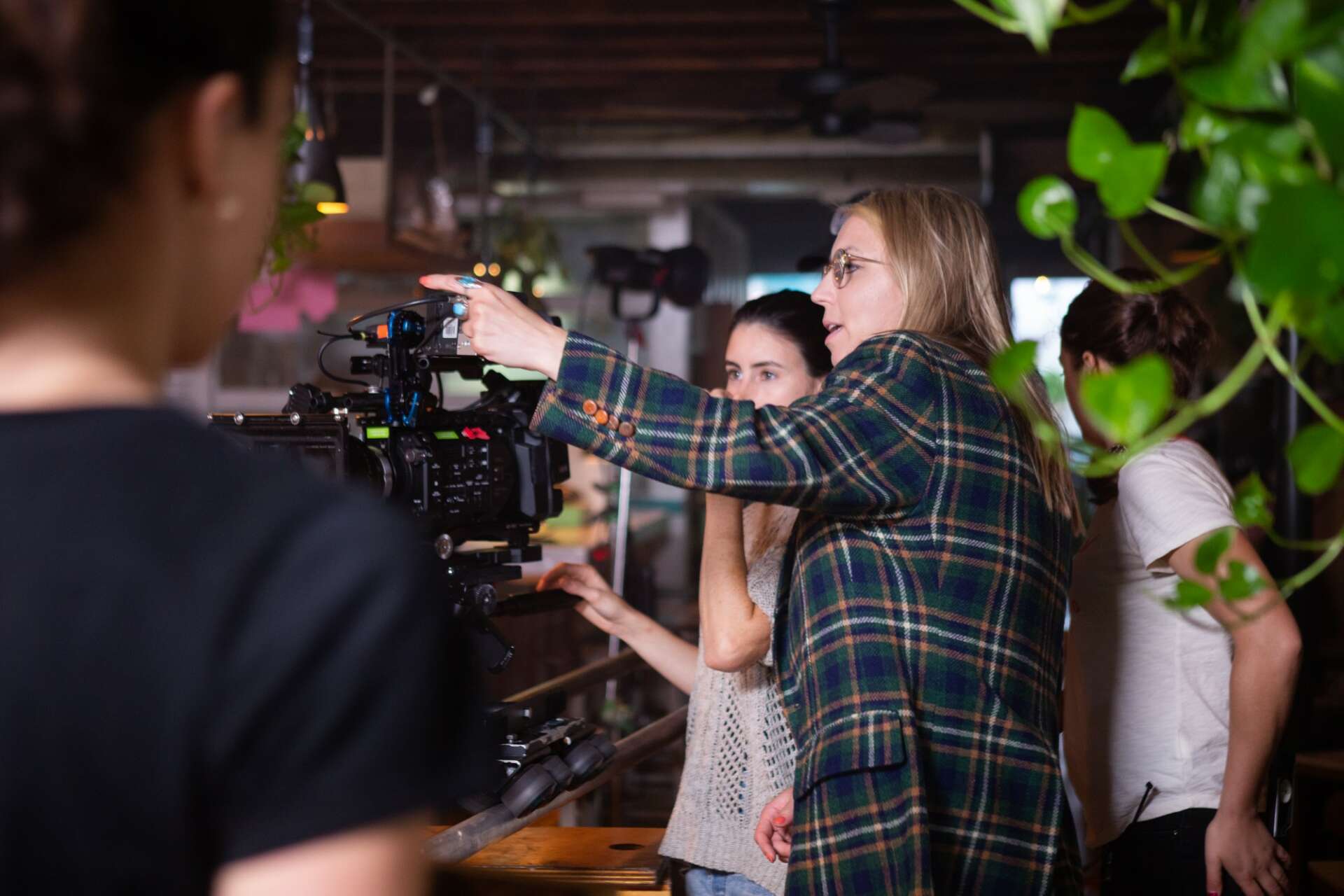
Learning and unlearning are both critical parts of growth – can you share a story of a time when you had to unlearn a lesson?
It is no secret that the entertainment industry has had a major recent upheaval in regards to its treatment and representation of women. I was in my mid-twenties when the Me Too movement erupted, and like many was taken aback by this sudden interest in hearing my voice. While working in entertainment I have encountered many moments where I have been silenced. A major aspect of my journey through this industry is unlearning that my voice doesn’t matter. Unlearning that I must be quiet, wait my turn, that my opinion is irrelevant.
Any advice for growing your clientele? What’s been most effective for you?
I’ve found as a filmmaker that it is essential to have a comprehensive understanding of as many roles and responsibilities in the filmmaking pipeline as possible. I believe working in a silo is inevitably going to limit what you’re ultimately able to create. I’ve always viewed directing as the role of a curator – it’s less about having all the right answers and more about asking the right questions. I have an idea of story, tone, meaning, but I don’t have the expertise to tell you how best to design a set that fits that, or create a prop that enhances it. I strive to find ways to inspire and motivate my collaborators so that together we can create something bigger than any one of us would think of on our own.
Directing is continuously asking yourself and others “why” and “how.” You’ll know when you finally hit on the correct answer – it is an indescribably amazing feeling. The clarity and certainty resonates to the core. Always keep pushing for that feeling because if you compromise on it, it’s going to stick with you.
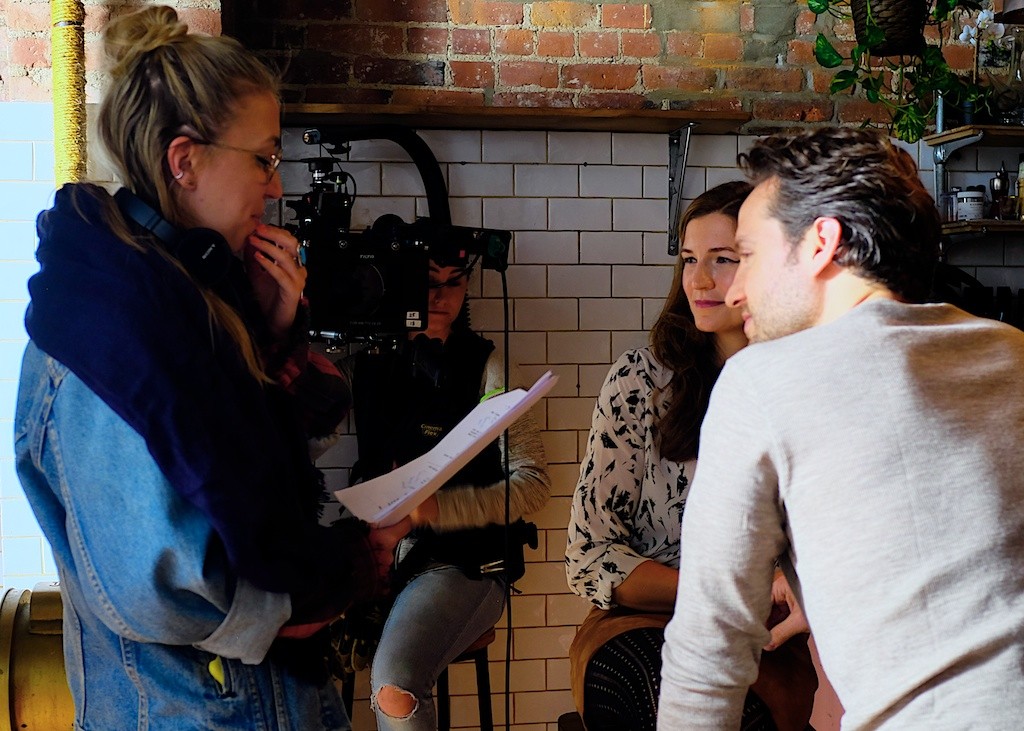
Can you share a story from your journey that illustrates your resilience?
I always go back and forth on whether this is a story of resilience or naivete, but it is retrospectively astounding to me that my first short film The Bracket Theory happened the way it did. At the time I was itching to make a short film but didn’t know of any screenwriters and had no idea where to turn to for scripts. So I decided that I would write my own despite the fact that I had no experience or training writing screenplays. I sat down at my computer and the script poured out of me over the course of three days. (A record which I have yet to match.) I took the script and started sending it around to people asking if they would get involved without any funds to pay them. I was working on the CBS show Blue Bloods at the time and was floored by the community support I found. The guest star of the episode we were working on at the time was the incomparable Meghann Fahy who graciously read my script and agreed to star in the project. Needless to say, she killed it. Every time an obstacle came up (and there were many) I would find some way to problem solve and there would be someone in my corner to help me actualize the vision.
After we wrapped, I decided that I would edit the project myself. I had never edited before nor had any familiarity with editing software but our Post Producer John Mabry (to whom I owe so much) allowed me to upload my footage to Avid at our production offices in Greenpoint. I spent about two months staying late after work and sleeping in the office over weekends and living off of pop chips and granola bars from the kitchen. I never felt so determined and quite frankly so inspired.
Bracket went on to have a successful festival run and I continue to hold it close to my heart. It contains all my baby filmmaker mistakes, but every time I watch it I am filled with pride and gratitude for what I was able to bring into existence from nothing, and for the community that supported me along the way.
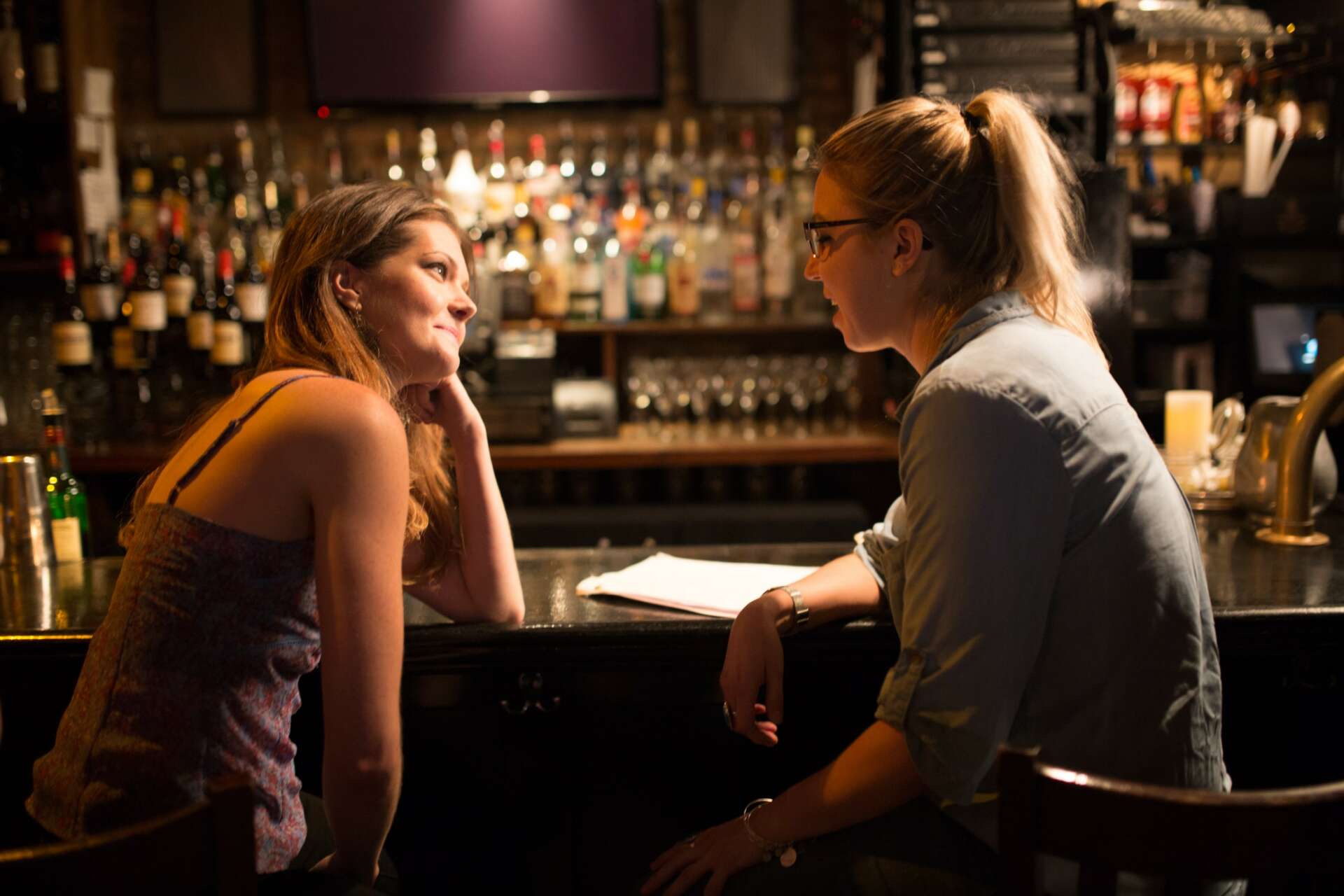
Contact Info:
- Website: www.katiakoziara.com
- Instagram: @katiakoziara
Image Credits
Max Gordon Camille Breslin Caity Urquhart


